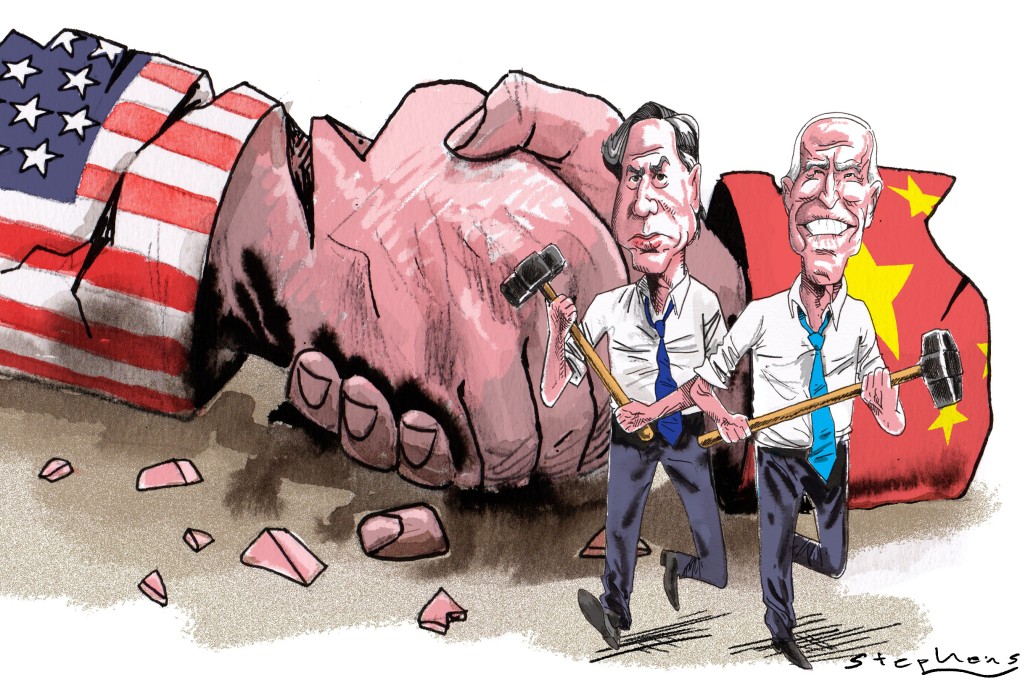Advertisement
Opinion | Whirlwind round of US diplomacy leaves China relations in unknown territory
- From hosting Asean leaders and visiting Asia, to the Quad meeting and Indo-Pacific economic strategy, Biden’s message is clear: the US is seeking to contain China
- Stung into action, Beijing is rolling out its own countermeasures, including a global security initiative
Reading Time:4 minutes
Why you can trust SCMP
4

US Secretary of State Antony Blinken made his long-delayed policy speech last Thursday, outlining America’s China policy by describing Beijing as “the most serious long-term challenge to the international order”.
Advertisement
This followed a wider effort to calm Beijing over President Joe Biden’s comment that the United States would be willing to use force to defend Taiwan against attack, and is the latest move in the administration’s months-long campaign to counter China. It seems to signal that deteriorating US-China relations will not improve any time soon.
The Biden administration has had a busy global agenda this month. Washington hosted Asean leaders for a special summit, then Biden travelled to South Korea and Japan for bilateral meetings, attended the second Quadrilateral Security Dialogue summit, and announced that 12 countries were joining America’s Indo-Pacific Economic Framework – a new pillar in the strategy to counter Beijing.
The May 12-13 meeting with leaders of the Association of Southeast Asian Nations was seen as a US move to counter China’s close relations with Asian states and expanded regional influence.
Jacob Stokes, from the Centre for a New American Security, argued that China’s assertiveness, its mixed record on the Belt and Road Initiative, economic slowdown and pandemic handling had created an opportunity for Washington to regain its momentum with Asean and offer attractive alternatives.
Advertisement
Beijing did not view the US-Asean summit positively and expressed its discontent over what it sees as US political and economic interference.

Advertisement
